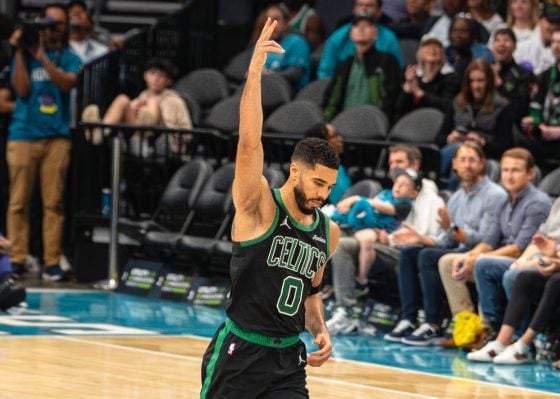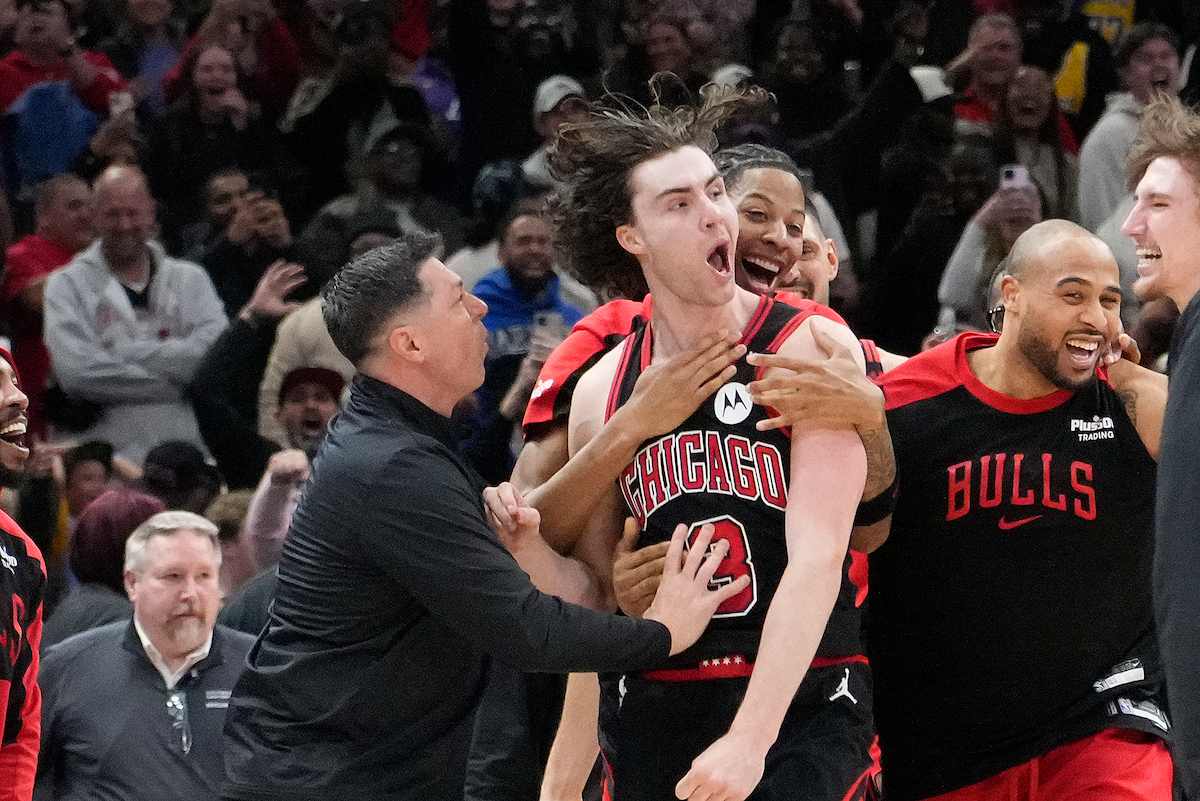Most talented young players in the NBA see their minutes and opportunity increase once they show they’re capable of handling more.
For Payton Pritchard, the opposite has been true.
The 26th pick in the 2020 draft was a meaningful contributor during his first two years in the league, averaging seven points per game while shooting north of 40% from three. He ended up playing a significant role off the bench for the 2022 Finals team, too, and seemed poised to take on a bigger role.
That role never came. In fact, Pritchard’s minutes per game have decreased every season he’s been in the league, from 19.2 to 14.1 to 13.4. He’s had to compete for time at the point guard position with Kemba Walker, Marcus Smart, Jeff Teague, Carsen Edwards, Tremont Waters, Dennis Schroeder, Derrick White and – most recently – Malcolm Brogdon.
Brogdon’s acquisition in the summer of 2022 was the true nail in the coffin for Pritchard’s progress last season, when he took a clear step back. Pritchard saw decreases in minutes, points, assists, and rebounds after moving back another slot in the guard rotation. Most importantly, though, his three-point efficiency took a dip, from 41% to 36%. That skill is supposed to be Pritchard’s calling card.
This season has to be different. For one, there will be a lot more opportunity for the 6’1” guard come October. With Marcus Smart on the way to Memphis, a massive hole has opened up in the guard rotation. A lot of that will be filled by Derrick White, due to take on a bigger role, and a general swing toward playing bigger, signaled by the acquisition of Kristaps Porzingis, might also eat some minutes. But another guard will have to step up, and Pritchard likely will be given the first opportunity to do so.
Side note: Pritchard has been after this sort of featured role for some time. He was frustrated with his role on the team last year, leading to an informal trade request.
On top of that, Brogdon’s availability is a huge question mark. Last year’s Sixth Man of the Year was injured during Boston’s playoff run, and his elbow might have partly been the reason he was replaced by Smart in the Porzingis trade. Brogdon reportedly did not have surgery this offseason, so who knows if he’ll be taking on full sixth man duties. If Brogdon isn’t playing for any reason, Pritchard becomes the backup point guard.
Pritchard, of course, has to respond well to an increased role. He has to be good. If he can’t move the ball well, be disruptive on the defensive end, and hit threes at a high level, he can’t be a big part of Boston’s title plans. Plus, he has to be better off-ball: His catch-and-shoot percentage dropped from 42% in 2021-22 to 38% last season.
Photo By Winslow Townson/Getty Images
Pritchard knows this, as he said recently in an interview with Adam Himmelsbach of the Boston Globe.
“Obviously, I have the ability to shoot and space the floor, but also this year being able to take pressure off, and if I have to handle and bring it up and showcase more of the passing side of things, I can do that,” Pritchard said. “But I’ve talked to Joe, and it’s going to be a lot of different things. Defensively, it’s my intensity getting into the ball, pressuring, getting my hands active, and just finding ways to affect the game every time.”
A larger role would be a big deal for Pritchard, who is in the last year of his contract with Boston. When he hits restricted free agency next summer, he will be looking to score a bigger contract than his active rookie deal – in Boston or elsewhere.
It’s hard to say what kind of money the former Oregon Duck would command on the open market. Free agency is unpredictable in and of itself. Just this offseason, 20-point-per-game scorer Kelly Oubre signed for the minimum with the Sixers, while Dillon Brooks signed with the Rockets for more than $20 million per year. Given Pritchard’s inconsistent role and performance in green, his value is up in the air, but should still be somewhere between those two players’
Want comps? The best-case scenario just signed a $128 million deal.
:no_upscale()/cdn.vox-cdn.com/uploads/chorus_asset/file/24945244/1239582325.jpg)
Steve Russell/Toronto Star via Getty Images
Pritchard’s first few years match up surprisingly well with those of Fred VanVleet’s. Plus, they are both 6’1” guards who can shoot, move the ball, and offer max effort on defense. Before signing an $8 million deal to stay with the Raptors in 2018, VanVleet scored just 8.6 points on 41% shooting from deep. He was the backup point guard behind Kyle Lowry, averaging 20 minutes per game. If I had to guess, I would predict a very similar minutes load and statline for Pritchard this season.
For the record, I’m not saying Pritchard will be as good as VanVleet. But VanVleet’s first few years do reflect nicely on Pritchard’s futures.
Under those circumstances, Pritchard should command something in the $8-10 million range next offseason. Boston is allowed to match any contract offered to Pritchard by another team but is already projected to be over the widely feared second luxury tax apron – making it pretty unlikely that Brad Stevens would bite.
In short: Payton Pritchard has a great chance to take a big step forward this year – and that step could be a giant leap right out of Boston.
For now, though, Pritchard remains committed to winning in green. “If I get the opportunity to play, I’ve got to show what I’m capable of and that I can help win at a high level. So, I’m just looking forward to the opportunity of showcasing that,” he told Himmelsbach. “At the end of the day I’m a winner and am obviously going to help Jaylen [Brown] and Jayson [Tatum], because those are the two that are pushing us, but we’ve all got to help them get over the hump and ultimately win a championship.”





